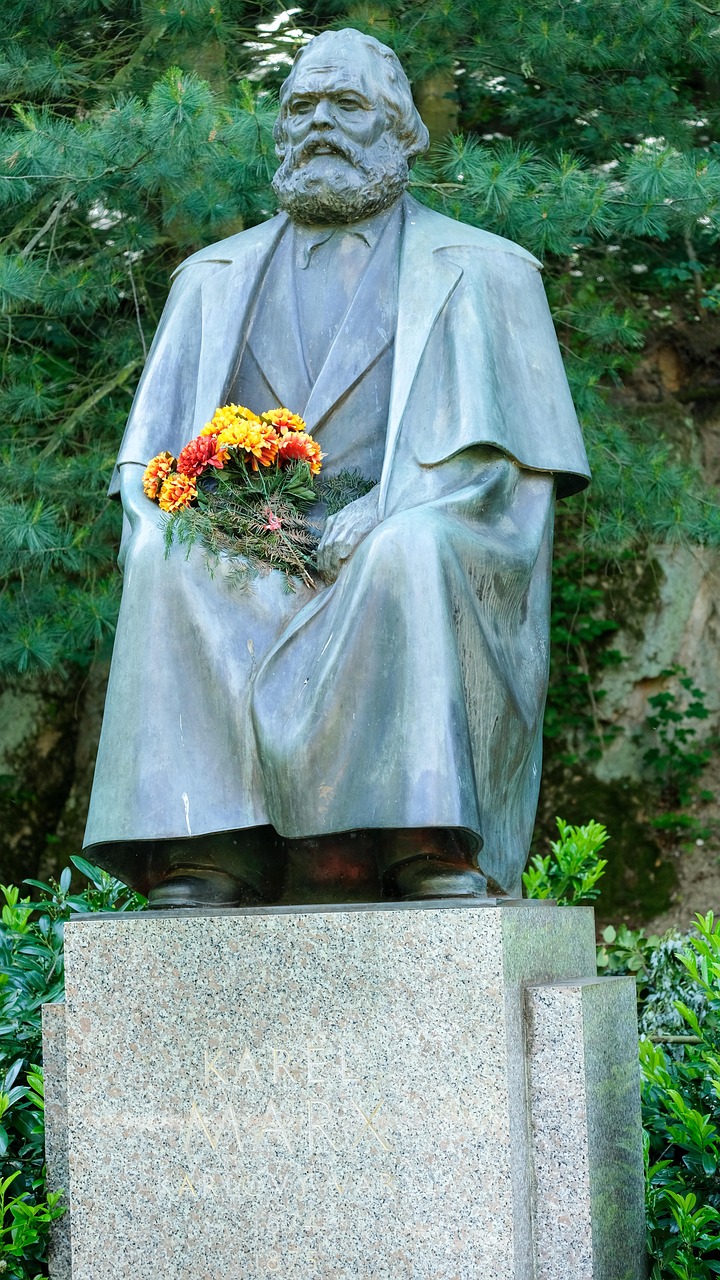Mr. Wyatt Ciesielka: Is God a Trinity? Ancient Origins and End-Time Implications
Author: David Markopoulos | Living Education
These summaries are written to give our audience an idea of the special forum messages our students have access to as part of the Living Education-Charlotte program.
Mr. Wyatt Ciesielka, a regional pastor serving in the eastern United States, delivered a forum message to the Living Education students. In his message, Mr. Ciesielka addressed a major doctrinal topic with important theological implications: the doctrine of the Trinity. The Trinity is one of the most important topics of discussion among theological circles, and many denominations have varying beliefs about it. However, as Mr. Ciesielka points out, the truth about this mainstream Christian doctrine is different from what many people realize.
Origins of the Mystery
Where did the idea of the Trinity originate? Long before Christianity, the ancient Babylonians worshiped a triune deity that formed the superlative basis for their pantheon. Alexander Hislop, in his book The Two Babylons, stated: “In the unity of that one Only God of the Babylonians, there were three persons, and to symbolize that doctrine of the Trinity, they employed… the equilateral triangle, just as it is well known the Romish Church does at this day.” Mr. Ciesielka presented numerous credible historic quotes, as well as pictures of ancient artwork, statues and stele on display at museums ranging from the Louvre to the Vatican. These ancient art and artifacts depicts not only ancient Babylonian worship of a triune godhead, or often a three-faced deity, which represented the principal member of their pantheon, but, as Mr. Ciesielka demonstrated, these same type of artifacts were also found in ancient Egypt, India, Persia and elsewhere.
Christianity Adopted Paganism
Over time, a change in how this early deity was most commonly depicted occurred. Rather than a single god with three faces, a “triune” god-head began to be worshiped as three distinct gods. The reason for this change is shown in the story of Nimrod, Semiramis, and Tammuz – three figures who embodied the role of a major god, his consort, and the reborn son. This concept of three primary deities over all the rest was found in every major world religion, including in “pre-Christian” times. As fledgling Christianity came into contact with the cultures of various nations, it was not difficult for syncretism to occur. Will Durant, in his book Caesar and Christ, pointed out: “Christianity did not destroy paganism; it adopted it… Christianity was the last great creation of the ancient pagan world.”
The Catholic Church
Today, the Catholic Church holds the doctrine of a triune God as its central theological pillar. Catechism 234 of the Catholic Church states that “The mystery of the Most Holy Trinity is the central mystery of Christian faith and life. It is the mystery of God in himself. It is therefore the source of all the other mysteries of faith, the light that enlightens them. It is the most fundamental and essential teaching in the ‘hierarchy of the truths of faith.’” And Catechism 738 states that it is the Catholic Church’s “mission” to “spread the mystery of the communion of the Holy Trinity.” As Mr. Ciesielka noted, it is no understatement to say that trinitarianism—the origins of which can be clearly proven to be pre-Christian and pagan—is the most important doctrinal point of the Catholic religion.
What is the Holy Spirit?
If God is not described as a Trinity in the Bible, how can we account for the seeming presence of a third member of the Godhead? Most people assume the Holy Spirit—often referred to as a “He”—is a deity in itself, which not only the Catholics teach, but as was demonstrated, Protestant and many Messianic or Hebrew Roots churches also teach. But this is based on an incorrect interpretation of Scripture that is used to justify what can be proven as a false, pagan doctrine.
The Holy Spirit is never addressed as a person by the apostles, as opposed to the Father and Jesus Christ, and Mr. Ciesielka presented numerous quotes from Dr. Meredith, Mr. Weston, Mr. John Ogwyn, Mr. Armstrong, and others to help make this point. As he explained the Church has long taught, in the Greek language of the New Testament, just like in French or Spanish, or many other languages, the use of the masculine pronoun, “he”, does not necessarily mean that the thing being referred to is a “male” in gender, or is even an animal or a person. However, one grammar argument which he wanted the students to be aware of, and which some advocates of the Trinity will use to make an erroneous grammatical argument, is based on John 14:26, where a neuter noun is used. Mr. Ciesielka showed an example of where some trinitarians will use this Scripture to argue that the writer had “a choice” in whether he used a masculine or neuter pronoun.
Since the Gospel writer supposedly “chose” to use the pronoun “he”, instead of “it” in this passage, then the argument goes that that was supposedly a way in which the Gospel of John is conveying that the Holy Spirit is “a person.” However, in reality, in John 14:26 the “he” pronoun refers to “the Helper, the Holy Spirit.” The term for the Holy Spirit in Greek, pneuma, is a neuter word which, in this context, serves as the apposition to the word for Helper—parakletos—which is a male noun, and the subject of the sentence. The pronoun used in this sentence must take on the gender of the subject (Helper), rather than the apposition (Spirit)—so the writer had no “choice” in which pronoun he used. This has been frequently cited as an important verse proving the nature of the Holy Spirit, when in reality the opposite is true: the Holy Spirit is not a “being”, but is God’s essence and His power, enabling us to be transformed into the very nature of the true God Himself.
What God Tells Us
Throughout the pages of the Bible, God has never been secretive about how He wants to be worshiped, or who He is. He has never demanded that we accept an “unknowable” God, or an “unknowable mystery”, which is how Trinitarians describe the nature of the Trinity. Instead, we find consistent examples affirming that God does not operate or reveal doctrine through “mystery religions” or sacramental ritualism. A Scripture Mr. Ciesielka used to make this point was Jesus’ own words in John 4:22, where He stated: “You worship what you do not know; we know what we worship.” God has always been clear, consistent, and honest with His worshipers about what He expects from them, as well as on the subject of His own divine nature—and the description of a triune God is nowhere to be found in Scripture. As believers in Christ and partakers of His Holy Spirit, we have what no other god offers—the chance to truly know our God and Savior, and to become like Him as part of His Family.

David Markopoulos is a Living Education alumnus from the 2023-2025 school years. Originally hailing from Chicago, he currently works for the Living Education program.








